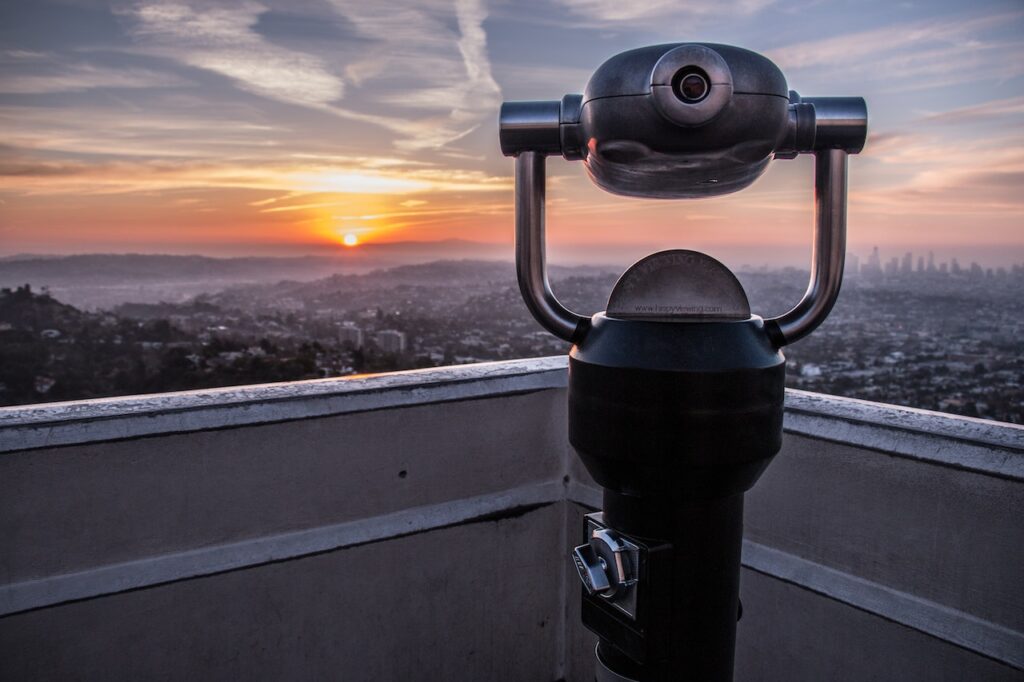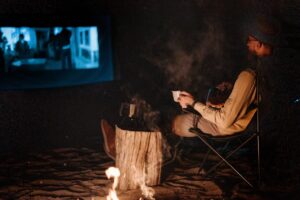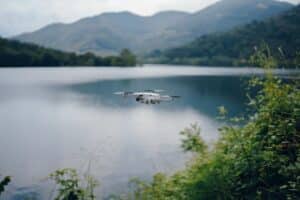Table of Contents
Are you wondering when spyglass monoculars were invented in history?
Let’s find out.
When Were Spyglass Monoculars Invented in History?
It was not invented until 1608 when the exact person who invented it is unknown. Most people believe Jacob Metsu from the Dutch Republic invented it.
The History of the Telescope and Binoculars
Glass blowing was invented by the Phoenicians around 3500 BCE. It took another 5,500 years before they could use their new invention to create the first telescope.
Hans Lippershey was probably not the first person to discover the telescope, but he did make his discovery widely known.
Galileo’s Telescope
The telescope was invented in 1609 by the great Italian astronomer, Galileo Galilei. He observed the craters on the moon for the first time.
Galileo discovered sunspots, the moons of Jupiter, and Saturn’s rings using a telescope similar in design and function to an opera-glass.
He used an arrangement of several pieces of curved polished and grounded optical glass to magnify objects. With this method, he could view the entire surface of the Moon at once.
Sir Isaac Newton’s Design
Sir Isaac Newton developed a new kind of telescope glass in 1704. Instead of using lenses, he used a concave mirror.
A large reflective surface acts like a light collector. The bigger the surface, the more sunlight it can collect.
Improvements to the First Designs
Scottish Optician
The Short telescope was invented by Scottish optician and astronomers James Short in 1740. It is the first perfect parabola, ellipse, and distortion-free mirror used in reflector instruments. James Short made over 1360 of these instruments.
Newton
After Newton invented the reflector telescope, other inventors tried tinkering with it, trying to improve its performance.
Newton’s Fundamental Principle
Newton’s fundamental principle of using a single curved mirror to gather light remained the same, but eventually, the diameter of the reflectors was increased from the six-inch reflectors used by Newton to 6-meter reflectors – 236 inches in diameter.
Special Astrophysical Observatory
The telescope was built at the Russian Special Astrophysics Observatory, which was established in 1974.
Segmented Mirrors
Segmented mirrors were invented during the nineteenth century, but they’ve only been used by a few scientists. Astronomers often doubted their usefulness.
Finally, the Keplers were able to push technological innovation forward by bringing their innovative idea into reality.
The Introduction of Binoculars
Binoculars consist of two similar lenses attached to a single frame so that each eye sees through one lens.
When Hans Lippershey first applied for a patent in 1608, he was actually told to design a binocular telescope. He reportedly built it later that same month.
Box-Shaped
Box-shaped terrestrial binoculars were produced during the second half of the 17th century and the first half of the 18th century by Cherubin d’Orleans in Paris, Pietro Patrio in Milan, and I.M. Dobler in Berlin.
They weren’t successful for two reasons: First, they were too clumsy, and second, their products had poor quality.
First Real Binocular Telescope
The first true binocular telescope was invented by Jean Pierre Lemiere in 1825. Later improvements were made by Ignazio Perugino (1854), Carl Zeiss (1905), and others.

When Were Spyglass Monoculars Invented History?
History of Monoculars
Monocullar eyeglasses were invented during the early twentieth century, but they weren’t commonly used until the 1960s. Today, monocullar eyewear is widely used as tools for hunting, fishing, bird watching, nature observations, and other outdoor activities.
How Did We Get Here?
Telescopes were originally just used for looking at objects far away. However, when someone wanted to see something up close, he had to look through his own eyes.
Refractor
By the 17th century, people had developed telescopes that used lenses instead of mirrors. These types of telescopes became popularly called refractors.
Refractors work well for distant objects, but not so well for nearby ones.
Reflector
New kinds of telescopes were invented in the 1800s: reflectors (better than refractors).
Even though they’re great at looking into narrow ranges of views, they still don’t always get every angle right. To be able to look into wider range of views, you need to make your mirror larger. Large mirrors mean heavier and bulkier.
Camera Obscura
A camera obscura uses light coming from outside the box to illuminate an interior surface inside the box.
Light travels through a sheet of paper or fabric before reaching another object. Some of the light bounces around until it hits an object where it reflects back into the container.
This time, some bright light shines through the hole again and hits another sheet of paper or cloth.
And so on, until finally, after many repetitions, light reaches the back of the box. The light then reflects off the back and bounces back to its starting position.
Conclusion
Binoculars are optical instruments that allow people to see objects clearly from a distance. They usually consist of two lenses mounted side by side so that their fields of vision overlap.
Feel free to ask if you have any questions.
Author
-

John is the Editor in Chief here at The Outdoor Stores. His area of expertise ensures that there is no one better to suggest which rifles are most suitable for your hunting experience. He is also available for you to contact him personally to discuss the types of animals you want to hunt and the terrain you will be hunting on.
Feel free to read his posts for expert opinion on Rifles, Scopes, Rangefinders, Bonoculars and Monoculars.
View all posts






